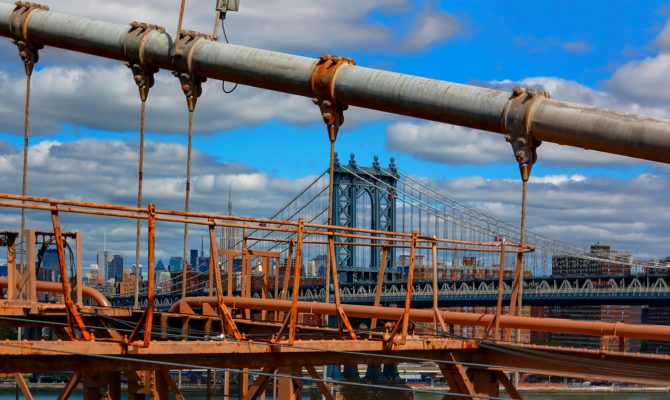
Metal pipe is the industry standard when it comes to pipe that is strong and can withstand high heat and pressure – but unfortunately, corrosion of pipe is something that metal materials can’t avoid. Stainless steel, carbon steel and other alloys that transport fluids in industrial applications are susceptible to corrosion, which in turn weakens pipes, affects flow rates and efficiency and can lead to costly shutdowns. Here, we provide a breakdown of how pipe corrosion effects pipe and how it can be avoided.
Causes of Pipe Corrosion
The most common type of corrosion is internal corrosion, which is caused by the type of fluid being transported. For instance, when an acidic substance flows through a metal pipe, the acid begins to dissolve the metal. This can cause pitting, a type of corrosion where tiny pits form along the length of the pipe. This diminishes the pipe wall’s thickness, reducing its strength and capability to bear pressure.
High temperatures and pressure are also factors that can cause a metal pipe to slowly break down over time. The most common type of corrosion, however, is crevice corrosion, which happens when fluid concentrates in crevices around welds, flanges and pipe connections. This buildup can degrade the material more quickly, which is why pipes tend to leak at the seams first.
External corrosion is also a big issue for industrial plants located in coastal regions – salt content in water vapor can eat away at a metal pipe’s exterior.
In any case, pipe corrosion can wreak havoc on industrial systems, causing pipe breaks and shutdowns that cost the business money.
How to Avoid Metal Pipe Corrosion
The easiest way to avoid metal pipe corrosion is to regularly inspect, repair and replace aging and corroded pipes. For example, some industrial plants regularly paint over their metal pipe to avoid external corrosion, and tests are conducted on pipe integrity regularly. Another option is replacing metal pipe with a material that doesn’t corrode, such as CPVC pipe, fittings and valves.
Pipe linings like those made of epoxy resin also prevent liquids from coming into contact with the metal, ultimately prolonging the lifespan of the pipe.
When it comes to your business, All-Tex is in your corner, working with you to select the right type of pipe for your project, and assessing your needs to determine which materials will work best for you. Contact us or stop by one of our many locations to get started on taking control of your piping needs.
